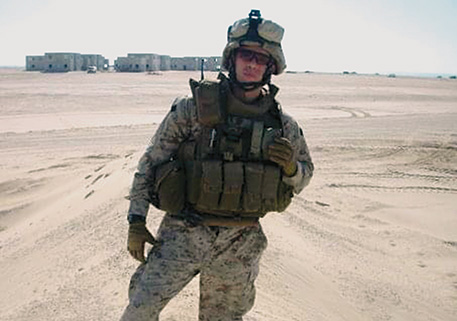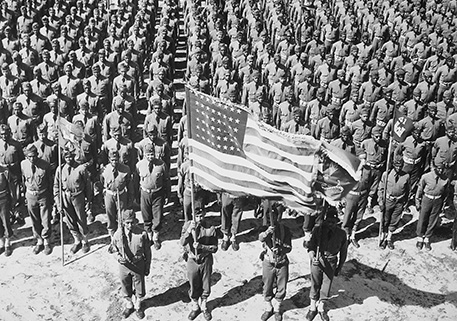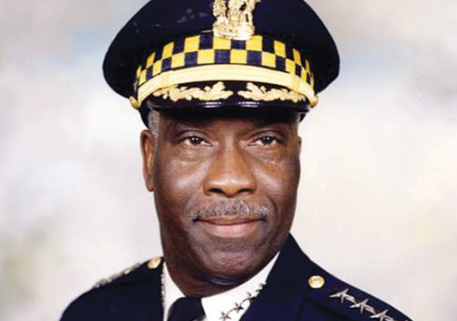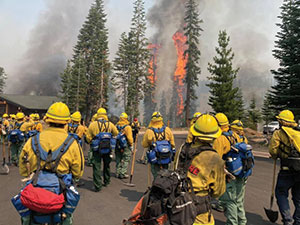
DAV’s Disaster Relief Program assists, cares for veterans in immediate wake of tragedy
In July, Larry Pascoe; his wife, Jackie; and their son, Jason, had mere minutes to get to their basement before a tornado hit their property outside Armada, Michigan.
“We’ve got 10 acres, and it had to pick the one acre that the house sits on to come down on,” said Pascoe, an Air Force veteran.
The Pascoes and all of their animals—dogs, chickens, rabbits and turkeys—survived unhurt. But the twister, one of four to hit the region that night, caused significant damage to their home, pole barn and vehicles.
Pascoe, who retired from the Air Force in 1993, said two of their four dogs refused to go to the basement with them. They found their dachshund hiding underneath their bed, the roof overhead having been ripped off.
“The puggle was in the kitchen guarding the refrigerator,” said Pascoe.
The house was uninhabitable, so the Pascoes lived out of a trailer with no running water and used generators for electricity for two weeks as they made other arrangements.
“That’s not my idea of ‘glamping,’ as they call it,” he said.
Pascoe said that after the storm, the community, which boasts a large number of veterans because of nearby Selfridge Air National Guard Base, started showing up with food, gas cans and offers to help clean up his property.
Among those offering help was Jason Zielke, a DAV benefits advocate working out of Detroit.
Zielke, an Army veteran, was on his way home the night the tornadoes hit. As he was driving, he looked out of his passenger window and saw what looked like a funnel cloud. He was just exiting the freeway when his wife called confirming a tornado was in the area.
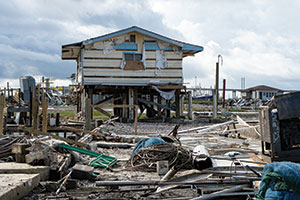

He made it home safely, but while he and his family were not affected, he knew others may not have been as fortunate. Immediately after the storms passed, his thoughts shifted to veterans in the area who may have been affected by the tornadoes.
“If that was me, I’d want someone to help,” said Zielke.
He reached out to the county clerks in the two counties the tornadoes struck to let them know veterans in need could get help with financial assistance through DAV’s Disaster Relief Fund.
Pascoe learned about this offer and reached out to Zielke, who was able to get him a draft check in just a few days.
Throughout the country, veterans like Pascoe must deal with the aftermath of widespread disasters such as hurricanes, wildfires, tornadoes and floods. Others may have to recover after an isolated incident such as a home fire. DAV’s disaster relief drafts and its comfort and hygiene kits are meant to provide rapid-response aid before other relief programs take effect.
“The days immediately after a disaster are full of uncertainty and can be incredibly stressful for our nation’s veterans and their families,” said National Service Director Jim Marszalek. “Our disaster relief grants and kits won’t solve every problem, but our hope is that they can help ease the burden of recovery and serve as a reminder that no veteran is forgotten, especially in their time of need.”
The one-time grants DAV offers can be up to $1,000, depending on the situation. Veterans can use the money to secure temporary shelter, replace lost food and home items, make repairs to their home or in any other way they see fit. This year, DAV has issued more than 1,300 disaster relief drafts, totaling more than $865,500, to recipients in at least 13 states and territories. DAV volunteers and employees also have distributed more than 3,000 comfort and hygiene kits to people affected by disaster.
DAV’s benefits advocates, who are members of the communities they serve, administer the program. Hoy Evans, who works for DAV in Oakland, California, said the majority of assistance in their area is because of wildfires.
“We get a front-row seat to the fires every year,” said Evans. “The stories that come from them can be pretty hair-raising.”
Evans’ supervisor, Bob Cole, recalled how one veteran they assisted had just enough time to grab her phone and get out of her mobile home before it burst into flames. Her entire neighborhood was engulfed by the McCash Fire that started in late July.
“It just completely cremated all those mobile homes,” said Cole.
Other fires they’ve provided drafts for this year include the Caldor Fire and the Dixie Fire, which is now the second largest in California’s history.
In Puerto Rico, DAV benefits advocate Alex Martinez recently assisted veteran Elba De Marchena and her family after an electrical fire destroyed everything inside their home. Like many homes in Puerto Rico, it was constructed from weather-resistant concrete and is safe for them to continue living in.
De Marchena’s husband, Pedro, is her full-time caregiver and said the funds helped replace a refrigerator and provide food for the family.
“It’s been a blessing, and he’s a thousand times grateful,” he said through his son, also named Pedro, translating. “Nobody is going to understand how grateful he is for Disabled American Veterans and what they’ve done.”
Martinez said providing disaster relief drafts is more than just an extension of what DAV does; it’s an ingrained moral obligation stemming from military service.
“We take care of our own,” said Martinez. “If you see them suffering, you suffer to a certain extent.”
Martinez said most people he’s helped rarely look at the amount they receive but notice that someone is trying to help and make them feel better in a bad situation.
Karen Martin, a DAV benefits advocate in St. Petersburg, Florida, agrees. She recalled the responses she got helping veterans affected by Hurricane Michael in 2018.
“It was as if you gave them a million dollars,” she said. “The sheer joy and the gratitude were just overwhelming.”
Back in Michigan, the Pascoe family has started the process of rebuilding. Pascoe said his insurance will cover most of the damage, but the money DAV gave him helped in the immediate aftermath of the tornado.
“It couldn’t have come at a better time,” said Pascoe.
He used some of the money to pay for the $30–$40 a day he was spending on generator fuel while his family was living in the trailer. The rest of the money went toward a deposit on a temporary home. They still drive the 28 miles back to their property each day to care for their animals.
“That place was supposed to be my forever home post-retirement,” said Pascoe. “And it’ll be my forever home again. It’s just going to take a little while.”

